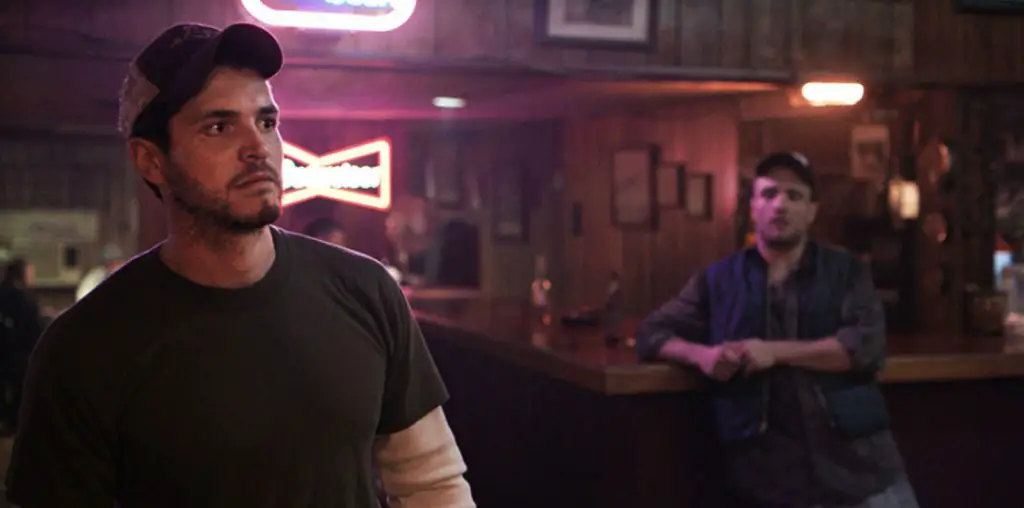
Check out Jeremy’s previous reports as he braves the 2004 Cannes Film Festival>>>
Walking through a supermarket in Anytown, U.S.A., Jean-Luc Godard might go unrecognized as a friendly looking aging man. At the Cannes Film Festival, however, he’s a god whose work raised the French New Wave to prominence and changed the face of cinema as we know it. The film worshippers gave their god a worthy reception at the screening of his latest film, “Notre Musique,” Tuesday night, as the festival thanked him for his contribution to the art form.
While his recent films aren’t often widely distributed, Godard continues to innovate in the medium, albeit in a sometimes impenetrable manner. Three years ago at the festival, “In Praise of Love” was one of his best-received films in years, but it was reevaluated as trash when it came out in theaters, as critics like Roger Ebert didn’t know why they liked it the first time around.
“Notre Musique” is a stronger effort, displaying the master still messing with structure, editing and sound to create completely unique art. The film is separated into three parts taken from the kingdom’s in Dante’s Inferno, Hell, Purgatory and Paradise. Hell is an experimental sampling piece, with a montage of war footage that sometimes goes completely black for several seconds while the soundtrack either remains completely silent, plays dynamic piano music or has a philosophizing and praying woman’s voice.
Most of the movie takes place in a somewhat optimistic Purgatory, set in Sarajevo, where there is much discussion of the Israeli-Palestinian conflict. A woman journalist is in town trying to speak with old heroes and interview poets, and one scene has echoes of Godard’s first film, “Breathless.” Godard, playing himself, is there to give a conference on image and text, and is often backlit while holding up pictures and talking theory. On the soundtrack, music and voice-over occasionally lose their intimate illusions when ambient crowd noise shocks the previous sound mix created.
After almost 50 years of filmmaking, Godard still has the impulse to reinvent the cinema, even if the general public isn’t in the mood to test his hypothesis.
While the competition has yet to show many truly great films, it has had a solid selection of well-made works, with Kore-eda Hirokazu’s “Nobody Knows,” the first film to screen, remaining the best. New films by Wong Kar-wai (if the just-finished print makes it here), Olivier Assayas and Mamoru Oshii, however, are keeping everyone patient to the end.
Tony Gatlif’s “Exils” tries to marry cultures old and new, ancestral and lived. It is a meditation on cultural identity filled with traditional and modern music and colorful photography. It begins in a Paris apartment filled with musical instruments and big speakers, as a naked young man stops the music to ask his girlfriend if she wants to go to Algeria. She laughs, then agrees. As they travel, we learn that his musician grandfather was a refugee from the land. The energetic, sex-crazed girlfriend is also of Algerian decent.
As the characters travel away from Paris on their long journey by train, then by foot, they encounter gypsies and others who are heading towards their city with forged papers and the promise of work. Some are running away to find life, others are running back in the hopes of finding their place.
One of the best films in the Un Certain Regard sidebar is the Hungarian film “Kontroll.” Written and directed by Nimród Antal, the film is a spooky, pitch-black comedy about the frustrating and disturbing life of ticket control officers in the Budapest subway system. Like its hero, Buscu (Sándor Csanyi), the film’s camera never leaves the underground for the surface. It exists solely in the dank world of chiaroscuro florescent lighting, uninviting tunnels and bottom halves of towering escalators that lead back to the real world. The amusing assortment of characters includes a cute young woman in a bear suit who has no ticket—and with whom Buscu immediately falls in love—a cocky team of ticket takers who get to wear the new leather jacket uniforms because they’re better than Buscu’s clumsy team, which includes a narcoleptic, and an assortment of dysfunctional passengers who find offense and despair when the officers try to do their jobs.
ThinkFilm picked up “Kontroll,” so hopefully it will receive decent distribution in the United States. Its combination of humor and dark dramatic intrigue creates a graceful journey through the underworld of a city. Why doesn’t Buscu ever come up to the sunlight? What was his life like before he went underground? Why has there been a recent rise in suicidal passengers jumping in front of trains? These questions create one of the festival’s most distinctive experiences.
Keep checking back for more of Film Threat’s Cannes Film Festival Coverage 2004. But until then, let’s have some Back Talk>>>
